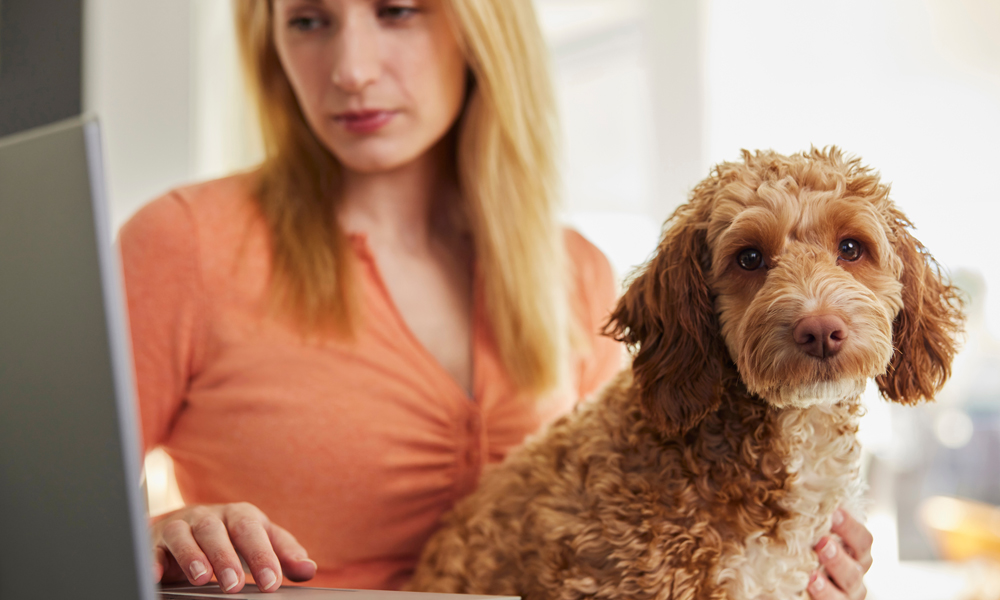Anal glands — not a topic you were expecting to research when your dog joined your family, right? But these little oval-shaped sacs on either side of your dog’s anus can become impacted or even infected, causing pain and discomfort, while making your furry friend smell awful as if they were rolling in rotten fish.
What is the deal with anal glands and how can you help your dog keep this issue under control?
What’s the function of anal glands in dogs?
To help your pet avoid problems, we’ll talk about the purpose of anal glands and the causes that lead to uncomfortable impaction.
When a dog defecates, the force and pressure of the stool causes the glands to excrete a small amount of fluid. Some believe the secretion provides lubrication to help the dog pass their stool.
Scent marker
These gland secretions are super stinky, though, often described as smelling like rancid fish. Therefore, animal experts think it’s more likely that when dogs do their business, they’re also leaving a scent marker for other dogs to notice. (Cats do the same with their gland secretions.) This can explain why dogs often sniff each other in the rear in greeting or pause to get a “reading” on the droppings of another dog.
Does your dog ever give off a brief scent of fish when company arrives? How about when you pick them up from the vet or groomer? Dogs express gland fluid in times of fear or excitement. The sphincter muscles contract, which in turn activates the anal gland.
Why does my dog smell like fish? Signs of impacted anal sacs
When your dog’s anal sacs are healthy and functioning normally, any rotten fish odors should be fleeting. But if smelling rotten is a regular thing, something is wrong.
Impacted sacs
One cause of the fishy smell is impacted or plugged sacs. This happens when the ducts become inflamed, preventing the sac from expelling, which allows secretions to build and thicken in the sac.
Common signs your dog has impacted anal sacs:
- Scooting or dragging rear end on the ground
- Ongoing fishy odor
- Licking and biting at the base of the tail (resulting in foul, fishy breath)
Read Why does my dog’s breath smell like fish?
In the meantime, take extra care when handling your dog, because impacted glands can leave your pet feeling extra sensitive.
Infected sacs
Impacted sacs can eventually turn infected because the bacteria (which would normally be flushed out in a bowel movement) also builds and causes an abscess.
Treatment of impacted or infected anal sacs
When you see the signs of an anal sac impaction, make an appointment with your dog’s vet right away.
The vet will treat the impaction by expressing the sacs to get rid of the buildup. (As you can imagine, it’s a foul-smelling procedure!) If needed, the dog will get anti-inflammatories and a cold compress.
For an abscess and infection in the anal sacs, treatment is expressing the sacs, along with a course of antibiotics.
How often should you express your dog’s anal glands?
While most dogs experience impacted anal sacs at some point, others are predisposed to frequent recurrences, particularly smaller breeds. To prevent infection, pain, and discomfort, schedule regular visits with a vet or groomer to express the glands. Or, if you don’t mind the smell, you can have one of these professionals teach you to do this at home safely.
Another option for recurring infections is having the glands surgically removed. Because the anal glands are not essential for your dog’s health and function, they can live a normal, happy life without them.
How to keep your dog’s anal glands healthy
To help your dog maintain healthy anal glands, well-formed stools are important. Soft, runny poops don’t provide the force or pressure the glands need to secrete normally during a bowel movement.
Simple dietary changes can turn things around for many dogs.
Increased fiber intake
Add bulk and firmness to your dog’s stool by supplementing your dog’s dinner with canned pumpkin (without sweetener or pie spices) and unsalted pumpkin seeds.
Rotational feeding
Is your dog developing a food sensitivity? If your dog has been on the same diet for months or years, starting a rotational diet can give your dog relief from the stomach upset that causes soft stools. Your dog will get a more complete nutritional profile to boot!
Focus on gut health
Replace the bad bacteria that can cause messy stools, gassiness, and diarrhea with the good bacteria that are a byproduct of probiotics and prebiotics. Look for foods with at least 80 million or more colony-forming units (CFU) of probiotics. (NutriSource pet foods use a minimum of 100 million CFU per pound in all our formulas.) Good bacteria builds a healthy microbiome, which supports systems in the body that reduce inflammation and improve immune response.
Good 4 Life is only found in NutriSource. This proprietary line of gut-health boosting supplements is found across the entire NutriSource line. Shop local and buy NutriSource at a local independent pet retailer.


